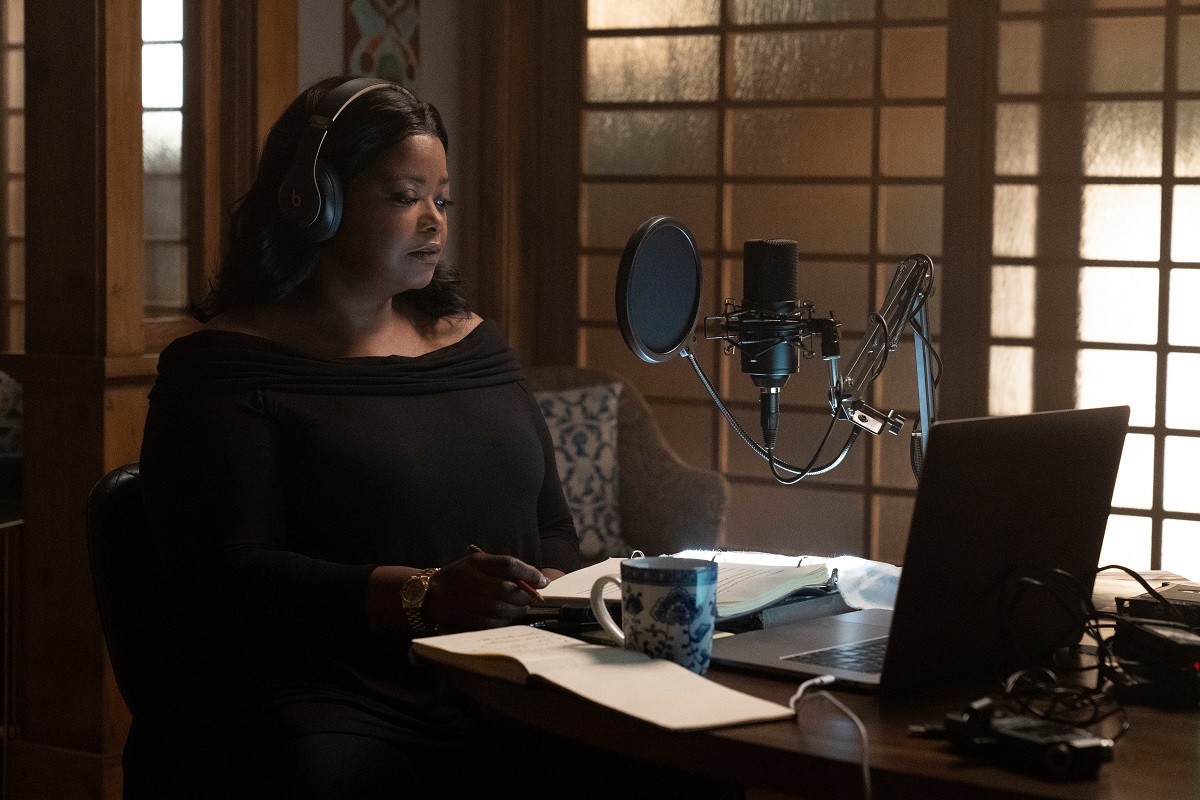You know that sense you get when a show or movie is trying to tell a story it fundamentally doesn’t know how to tell? It’s often a product of writing that hasn’t bothered to replicate the way people process emotions. Or it can be that off feeling you get when you’re watching something that doesn’t feel well-researched in the fields in which it is playing. Both of these uncomfortable feelings flood every scene of Apple TV’s “Truth Be Told,” their first outright disaster in terms of original programming. I was conflicted about “The Morning Show” and “See” (and liked “Servant” and “The Elephant Queen”), but this is the first show of theirs to really make me angry. Its most egregious sin may be wasting an incredibly talented cast, who all get sucked into the quicksand of hackneyed dialogue and clichéd plotting. There’s not a single moment in the first three episodes that feels true or even interesting as a soap opera. The truth is that it’s one of the worst shows of the year on any network.
Octavia Spencer, so good in this year’s “Luce,” never finds the right tone for Poppy Parnell, a famous journalist turned true-crime podcaster. The case that made her famous was the trial of Warren Cave, a teenager accused of murdering his neighbor. There was almost no evidence, and the case hinged on the testimony of one of the twin daughters of the dead man, a girl who pointed the finger at Warren. Years later, a tape surfaces that implies that the girl’s testimony was coached, sending Poppy into an emotional spiral. What if her reporting helped convict an innocent man? She starts a podcast designed to open the case again, and begins interviewing a now-adult Warren, played by Aaron Paul, who just happened to become a Nazi behind bars. Can a black woman free an innocent Nazi from jail?

The main problem with the first three episodes is that the mystery itself is barely developed. At its core, “Truth Be Told” feels like it once wanted to be Apple’s high-priced version of something like “The Killing”—a show that examined the impact of a murder on a community—but the murder itself needs to be central to the plot. To say that “Truth Be Told” rushes its set-up would be a massive understatement. Poppy sees the tape, becomes convinced of Warren’s innocence, and then does whatever it takes to prove it. It’s just not believable or interesting, in no small part because Poppy herself is deeply unlikable. She betrays the confidence of Warren’s mother (a wasted Elizabeth Perkins) in a way that feels gross, but the way she manipulates people is representative of the overall manipulative tone of the show, one that’s willing to use real-life issues like cancer, infidelity, abuse, and racism as melodramatic cudgels.
Worst of all, no one in the real world speaks or acts like the characters on “Truth Be Told.” Spencer delivers all of her lines like she’s actually hosting a podcast—radio and podcast people don’t talk in affected manners all the time—and the rest of the cast just sounds overwritten. It’s one of those shows in which nearly every line of dialogue is someone saying exactly what they feel or need. If it was trying to be go-for-broke melodrama, that would be different. I’m all for heightened emotion, but this isn’t that kind of piece. It’s just tone-deaf and manipulative.
“Truth Be Told” becomes the kind of affair in which you feel sorry for the cast. I personally think Spencer did the best work of her career in “Luce,” Paul might have done the same in “El Camino: A Breaking Bad Movie,” Perkins is always underrated, and Lizzy Caplan, who plays the adult twin girls, is killing it right now on Hulu’s “Castle Rock.” So how did all of these wonderful talents get hooked into a show that’s just not deserving of them? The story of how that happened is the true-crime podcast I want to hear.
Three episodes screened for review.












